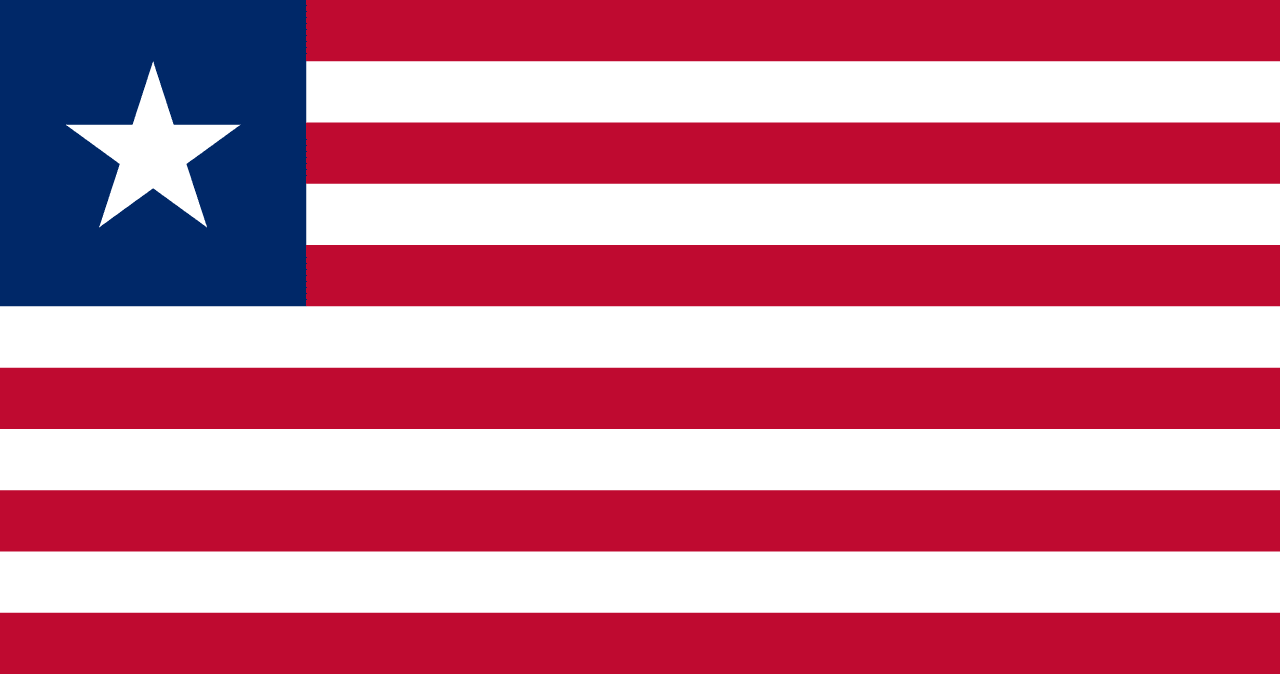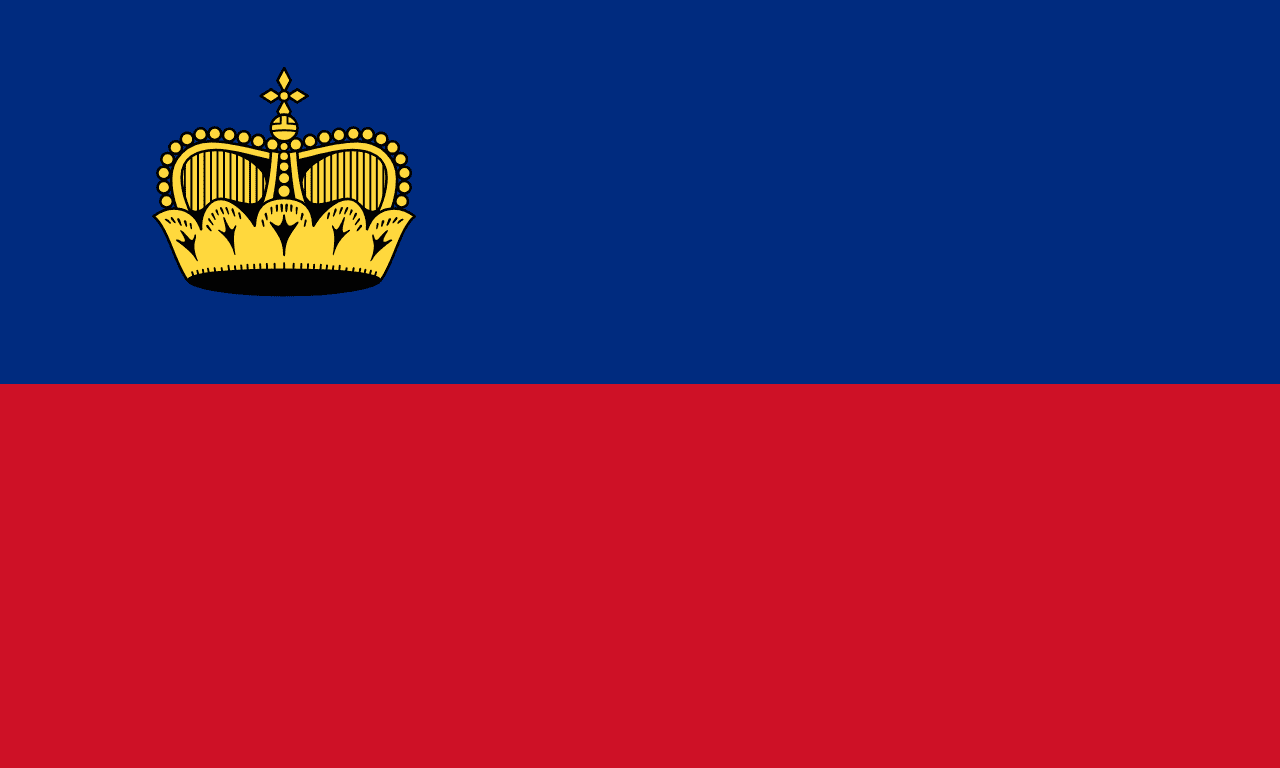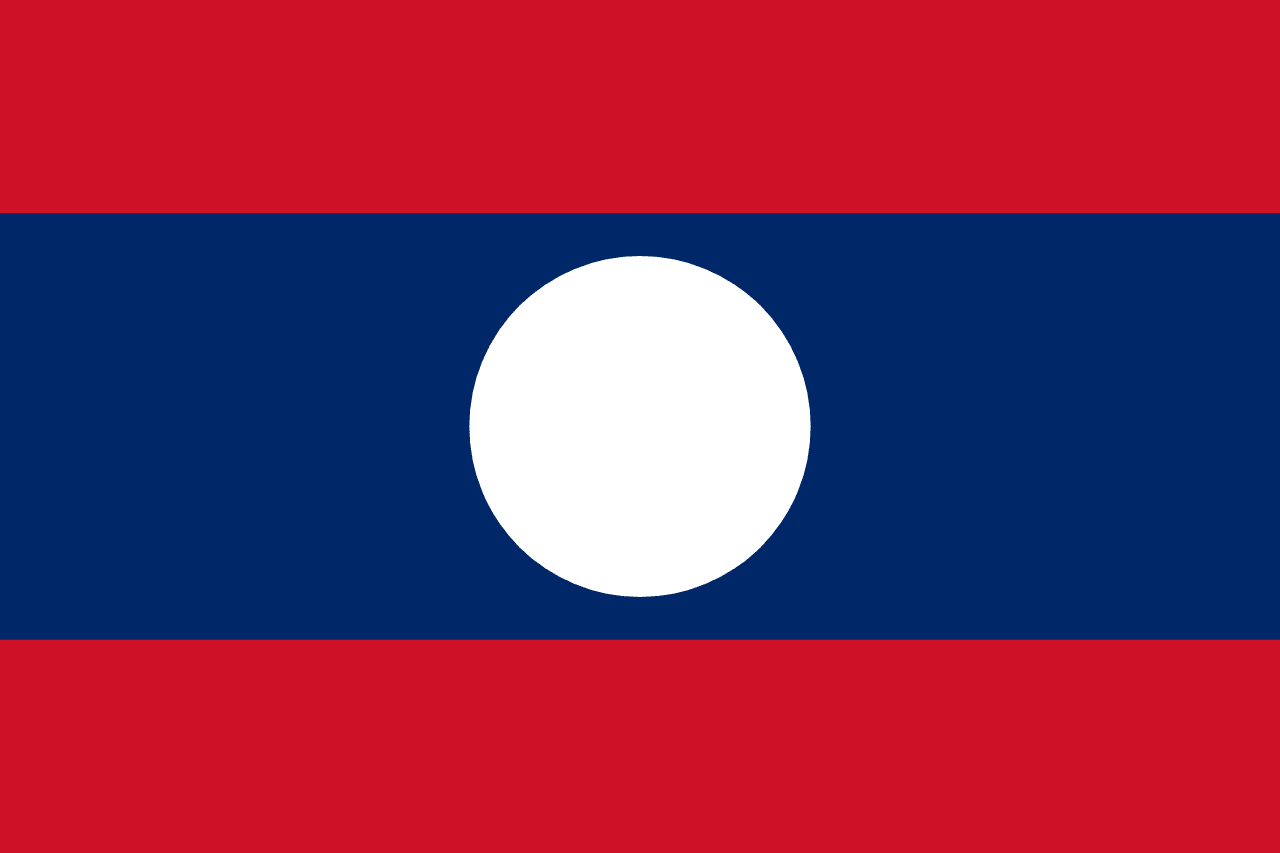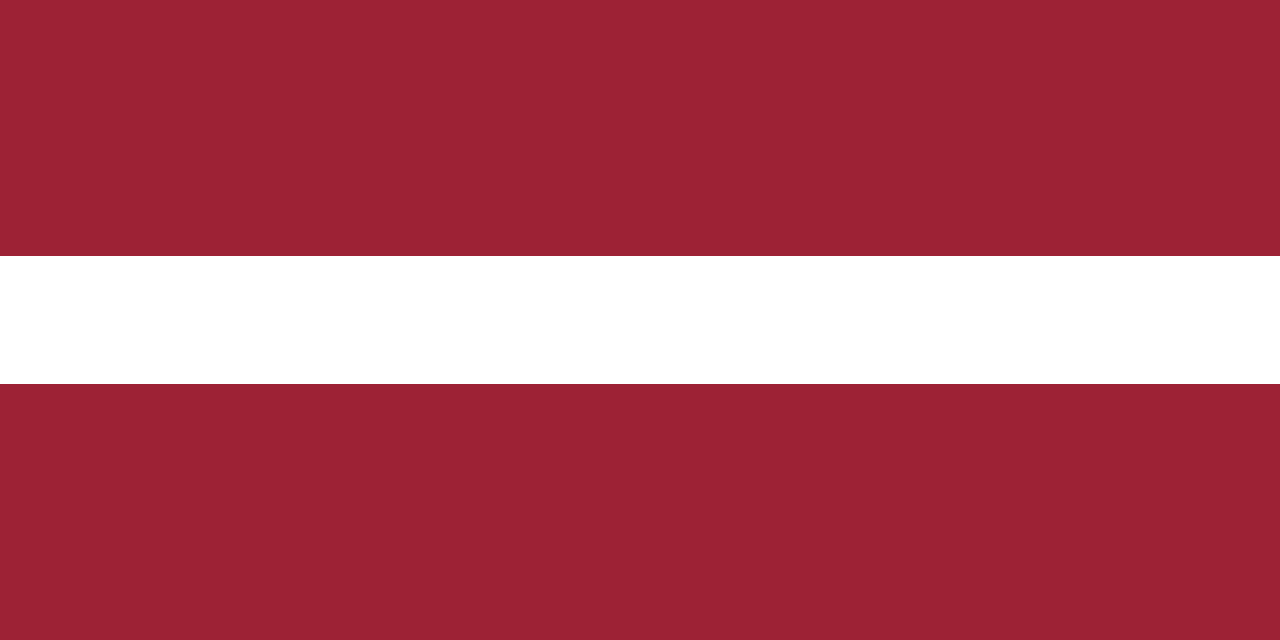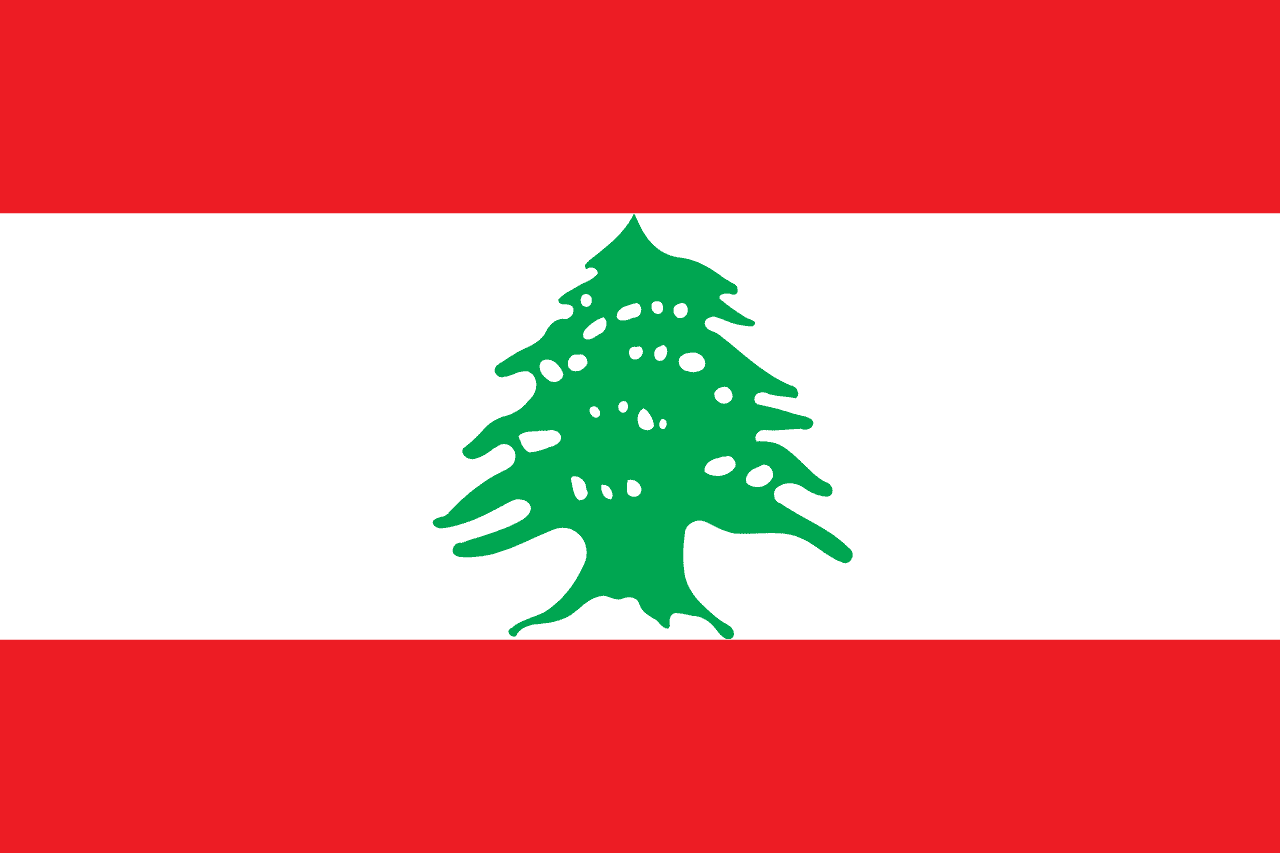The flag of Lesotho features three horizontal stripes of blue, white, and green, with a black Basotho hat (Mokorotlo) prominently displayed in the center of the white stripe. This unique design encapsulates Lesotho's natural beauty, cultural heritage, and national aspirations.
Lesotho information
| National Flag Day | October 4 |
| Sovereign state | Yes |
| Official name | Kingdom of Lesotho |
| Capital | Maseru |
| Population | 2,125,262 |
| Area | 30,355 km² |
| Currency | Lesotho loti (LSL), South African rand (ZAR) |
| Language | Sesotho, English |
| Continent | Africa |
| Region | Southern Africa |
| Subregion | — |
| Borders | South Africa |
| Timezone | South African Standard Time (SAST) UTC+2 |
| Calling code | +266 |
| Top-level domain | .ls |
History of the Lesotho flag
 The current flag of Lesotho was officially adopted on October 4, 2006, replacing an earlier design that had been in use since independence in 1966. This change was part of a broader effort to modernize national symbols and better reflect Lesotho's identity and aspirations. The new design aimed to unite the nation by incorporating elements that resonate with all Basotho people, regardless of political affiliations. The inclusion of the Basotho hat, a traditional symbol deeply rooted in the country's culture, was a significant addition that distinguished the new flag from its predecessor.
The current flag of Lesotho was officially adopted on October 4, 2006, replacing an earlier design that had been in use since independence in 1966. This change was part of a broader effort to modernize national symbols and better reflect Lesotho's identity and aspirations. The new design aimed to unite the nation by incorporating elements that resonate with all Basotho people, regardless of political affiliations. The inclusion of the Basotho hat, a traditional symbol deeply rooted in the country's culture, was a significant addition that distinguished the new flag from its predecessor.
Symbolism and design of the Lesotho flag
Each element of the Lesotho flag carries deep symbolic meaning. The blue stripe at the top represents the sky and rain, vital elements for this predominantly agricultural nation. It symbolizes the importance of water resources and the life-giving rains that sustain the country. The white stripe in the middle represents peace, purity, and stability, reflecting Lesotho's aspirations for harmony and progress. The green stripe at the bottom signifies prosperity and the land's fertility, highlighting the nation's agricultural heritage and potential for growth. At the center of the flag, the black Basotho hat (Mokorotlo) serves as a powerful emblem of Lesotho's cultural identity. This conical straw hat is traditionally worn by the Basotho people and represents the nation's indigenous culture, wisdom, and unity.
Usage and significance of the Lesotho flag
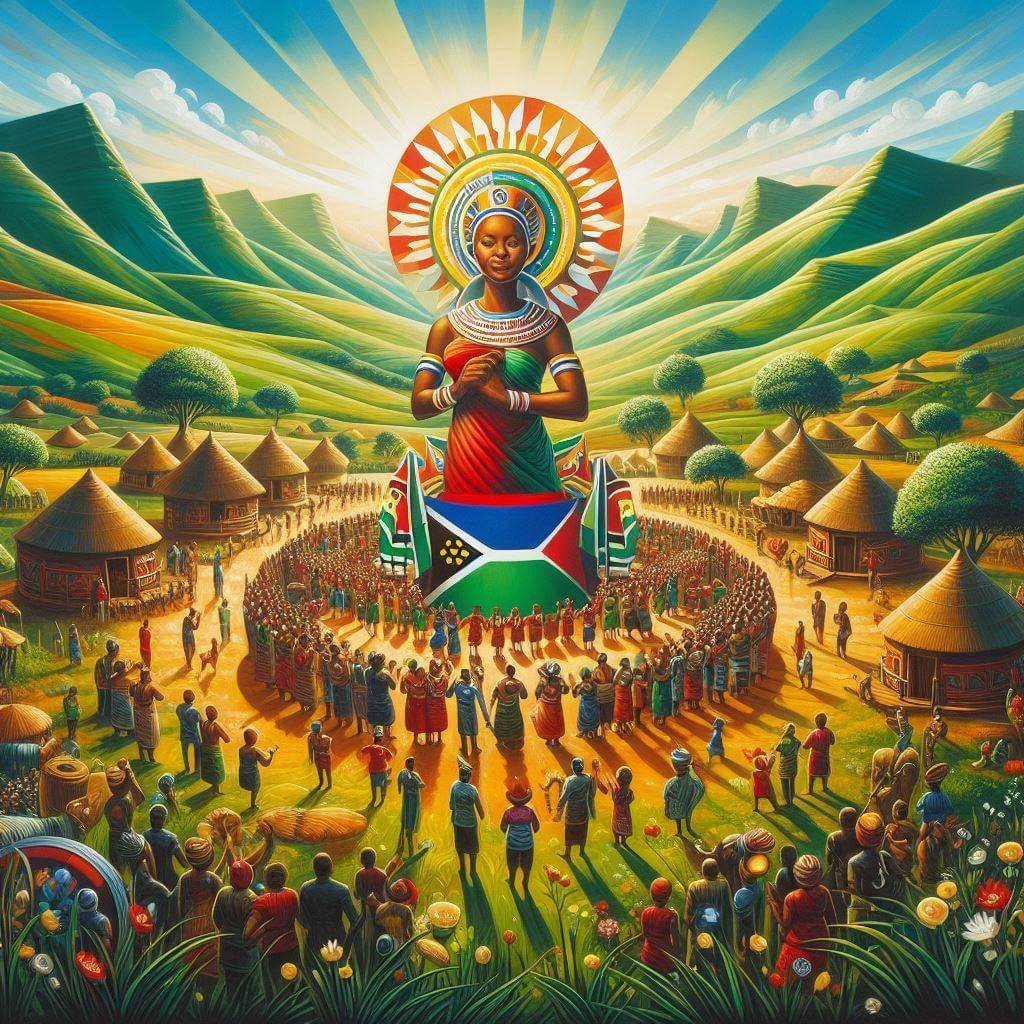 The flag of Lesotho is a source of national pride and is prominently displayed throughout the country. It flies on government buildings, schools, and during national celebrations such as Independence Day (October 4) and King's Birthday (July 17). The flag plays a crucial role in fostering unity among the Basotho people and representing their shared heritage. In international contexts, the flag serves as Lesotho's visual ambassador, representing the country in diplomatic settings, sports events, and cultural exchanges. It symbolizes Lesotho's sovereignty and unique identity on the global stage.
The flag of Lesotho is a source of national pride and is prominently displayed throughout the country. It flies on government buildings, schools, and during national celebrations such as Independence Day (October 4) and King's Birthday (July 17). The flag plays a crucial role in fostering unity among the Basotho people and representing their shared heritage. In international contexts, the flag serves as Lesotho's visual ambassador, representing the country in diplomatic settings, sports events, and cultural exchanges. It symbolizes Lesotho's sovereignty and unique identity on the global stage.
Interesting facts about the Lesotho flag
- Lesotho is one of only three independent countries in the world that are completely surrounded by another country (in this case, South Africa), making its national symbols, including the flag, particularly important for asserting its distinct identity.
- The Basotho hat on the flag is not just a decorative element but a practical item still widely used in Lesotho, particularly by shepherds and farmers for protection against the sun.
- The 2006 flag design was chosen through a national competition, reflecting a democratic approach to creating national symbols.
- Prior to the current flag, Lesotho's flag featured a traditional shield, which was replaced by the Basotho hat to create a more universally recognizable symbol of national identity.
- The flag's colors – blue, white, and green – are also prominently featured in traditional Basotho blankets, further tying the national symbol to everyday cultural elements.
